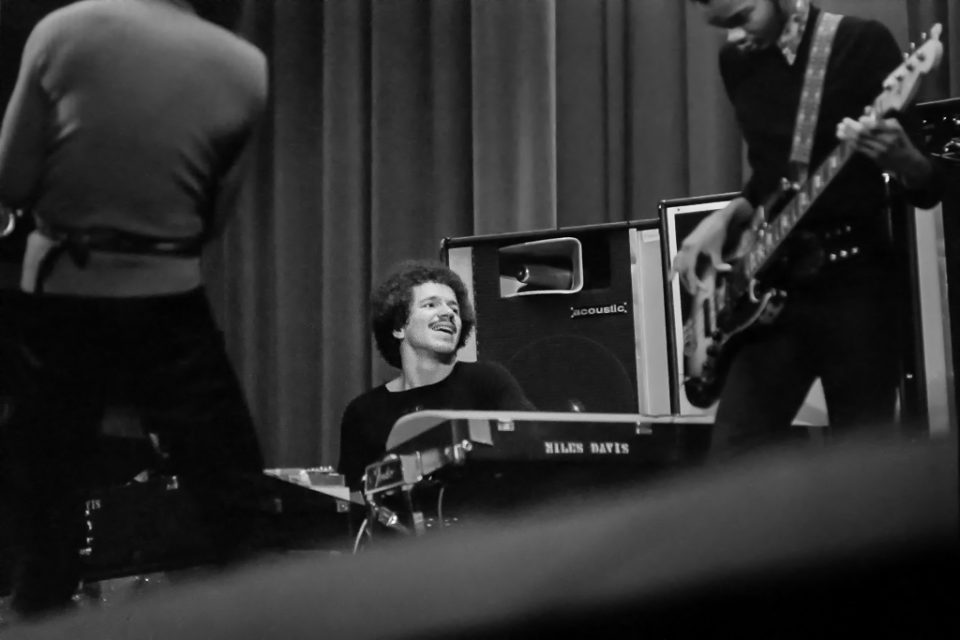Jazz Corner: The Keith Jarrett Story
We take a look at the life and career of the American pianist
Keith Jarrett announced in October 2020 that his piano playing career might well be over. This has come as a painful shock to his legion of followers and admirers everywhere. Jarrett had suffered a stroke which incapacitated his left hand which is so vital for a pianist. He has kept a low profile since 2018, when first, his concert at New York’s Carnegie Hall was abruptly canceled, followed by a cancellation of all his subsequent concert commitments. He has not played a show since that time. It must be very painful and frustrating for a musician to be laid low in this fashion.
Jarrett, along with Herbie Hancock, Joe Zawinul and Chick Corea have been the leading, most significant and influential jazz pianists in recent times. (Interestingly, each of these pianists with the exception of Jarrett has played in India). There is something of a similarity in the careers of these four jazz piano masters. Each one of them has transited from being a mainstream jazz pianist in the early 1960s to discovering the synthesizer/electric piano, experimenting with jazz fusion and then returning largely to playing acoustic jazz piano again. Jarrett had only a short experiment with the synthesizer before returning to the acoustic piano.
After his experiment with the electronic piano was over, came perhaps, some of his best jazz playing output; he formed a superlative acoustic trio with Gary Peacock on upright bass and Jack DeJohnette on drums. They have recorded albums of jazz standards, records of incredibly beautiful jazz. As this is being written, we are listening to this trio playing the ballad “If I Should Lose You,” a piece in which the three musicians seem to be in conversation with each other. This has been the consistent feature of all of this trio’s several recordings; they have elevated the acoustic piano trio sound to a high level.
Keith Jarrett was a child prodigy on the piano; he started playing at three and played his first concert at age seven. He graduated from Berklee, had a short stint with Art Blakey and The Jazz Messengers before joining the popular Charles Lloyd band as their pianist.
Jarrett then joined the Miles Davis fusion band where he played alongside Chick Corea using various synthesizers. However, after he left Davis, Jarrett gave up the synthesizer altogether and returned to the acoustic piano. He led a band with tenor saxophonist Dewey Redman, bassist Charlie Haden and drummer Paul Motian and played in a European band with Jan Garbarek. He also recorded a series of solo piano concerts. “The Koln Concert” is perhaps the best known from this period. In recent times Jarrett has played a series of solo piano concerts, with the Carnegie Hall recital in 2017 being the last of these. He was to return to this venue in 2018. This and his subsequent engagements were abruptly canceled due to his ill health. For us, his trio music with Peacock and Motian is the high point of Keith Jarrett’s jazz output.
Another great jazz pianist, Oscar Peterson had also had his left hand paralyzed by a stroke. With great determination and hard work, Peterson was able to recover enough to resume his playing career; he reinvented himself using a very dominant right hand. Hopefully, Jarrett can also make a comeback to piano playing. All his fans must be hoping for such a return.
We have had the misfortune of losing several jazz musicians when their careers have been cut tragically short by illness or death. A couple of years ago, saxophone legend Sonny Rollins gave up playing – he had injured his jaw and was unable to hold the saxophone in his mouth. Rollins had a long and very significant jazz playing career and is a true jazz legend.
Trumpet players Fats Navarro and Clifford Brown died in their twenties; Charlie Parker died in his mid-thirties as did Lee Morgan. John Coltrane, Wes Montgomery, Cannonball Adderley, Roy Hargrove and Nat “King” Cole in their forties are a few examples of very promising lives cut short. The loss to jazz fans of some potentially great contributions resulting from this can only be imagined and mourned.
However, the jazz community must be grateful to the recording industry to have preserved the work of these and other jazz geniuses for posterity. That is a boon and a blessing. Just listen on.
Sunil Sampat is a jazz critic and Contributing Editor of Rolling Stone India. Write to Sunil at jazzwala@gmail.com




